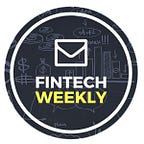Token-as-a-License, Blockchain’s next evolution
Blockchain technology is synonymous with digital tokens that are all too often viewed as a speculative asset class that has produced untold riches for a small elite of techno-savvy programmers and entrepreneurs who were in the right place at the right time. Less understood however is the blockchain or distributed ledger that underpins these digital tokens, its potential use and application is what drives the value that investors have identified and bought in to.
by Vivien Fuhrer, CEO of EZYcount
Digital tokens can be bought and stored in a digital wallet, they can also have a software license encoded into them becoming a Token-as-a-License (TaaL). TaaL drastically simplifies the creation, management, and distribution of software licenses for software producers.
At EZYcount we envisage TaaL revolutionising the way software licensing exists by bringing more value from the developers to the customers. Enforcing software license agreement based on a TaaL is much easier and robust than current software licenses. Blockchain smart contract technology enables a legal contract that establishes the user’s right to use or distribute software to be confirmed and recorded on an immutable ledger publicly stating the terms and condition of the relevant parties.
This brings huge advantages for technology companies and the customers they seek to serve with greater flexibility, adaptability and security than was previously possible with software licenses.
The principle advantage of token licensing is its flexibility, for example tokens can be maintained in a “token pool” of licenses usable across all participants as is the case with normal token licenses. For example, a company purchases two tokens and puts them in its token pool, these tokens represent the possibility to have two users at the same time connected to a specific server to perform a software for very complex calculations. The biggest advantage is for the user to re-sell unused tokens. As the software producer can easily control the validity of a token, checking it against the blockchain, users are completely free to trade the tokens anywhere as and how they see fit. Tokens are also adaptable, easy to manage, transfer, buy and sell, they do not require specific hardware and can be carried on a computer, laptop or mobile phone. They can also have security features added by software developers and users, companies can for example control the validity of a token when a computer is connected to the internet, token identification systems can be added or tailored to ensure access levels can be varied. This isn’t to suggest in any way that tokens are flawless, as with normal computers, they can be expose to computer viruses and software hacks. Hackers have found ways to go over that added security by blocking the software to connect to the internet, create counterfeit tokens, which are accepted by online commerce providers. To sum up, tokens make piracy more difficult but by no means impossible.
Blockchain tokens are defined as being digital tokens created on blockchain as part of decentralized software protocol. There are many different types of blockchain tokens, each with different characteristics and uses. Some blockchain tokens, like Bitcoin, function as a digital currency. Others can represent a right to tangible assets like gold or real estate. Token-as-a-License or TaaL are tokens representing software licenses. These tokens are either customizable or non-customizable.
Customizable tokens are tokens that can be coded and defined freely by developers such as tokens on Ethereum, with its most popular example being the ERC20. Non customizable tokens are standard tokens which are created through an official interface such as the Ardor wallet to create tokens on the Ardor blockchain. The main advantage of customizable tokens is the possibility to fully customize the token to fit the needs of the business. The main advantage of non-customizable tokens is the security, speed and easiness to create a new token. TaaL combines all the aforementioned benefits of customizable and non-customizable token software through the blockchain.
TaaL can be divided in 4 branches representing the three major current licensing models including TaaL SaaS, TaaL on-premise or TaaL open source. At EZYcount we have adopted TaaL lifelong for the pre-ICO, it represents a lifelong software license that provides access to users without any limitations on time or updates, made possible with blockchain. It provides the greatest value to token holders as its code is available to use immediately and could potentially increase in value in the future.
TaaL is the next step in software licensing evolution, creating new opportunities for businesses and solves some of the current issues faced by software licensing. The new business model deployed thanks to TaaL will allow a new breed of software start-up to sell icense rights secured over the blockchain. Above all else it will make digital goods and services instantly accessible to anyone anywhere in the world. As we enter the fourth industrial revolution, access to digital goods and services in retail financial services, logistics, support services and data management will be fundamental to ensuring blockchain’s potential productivity gains are realised and secured. TaaL ensures a legal framework for businesses and their customers is established that enables fair engagement and clear terms of use for blockchain companies and the people using their proprietary technology, it’s application lays out the framework for blockchain’s widespread adoption by the masses.
